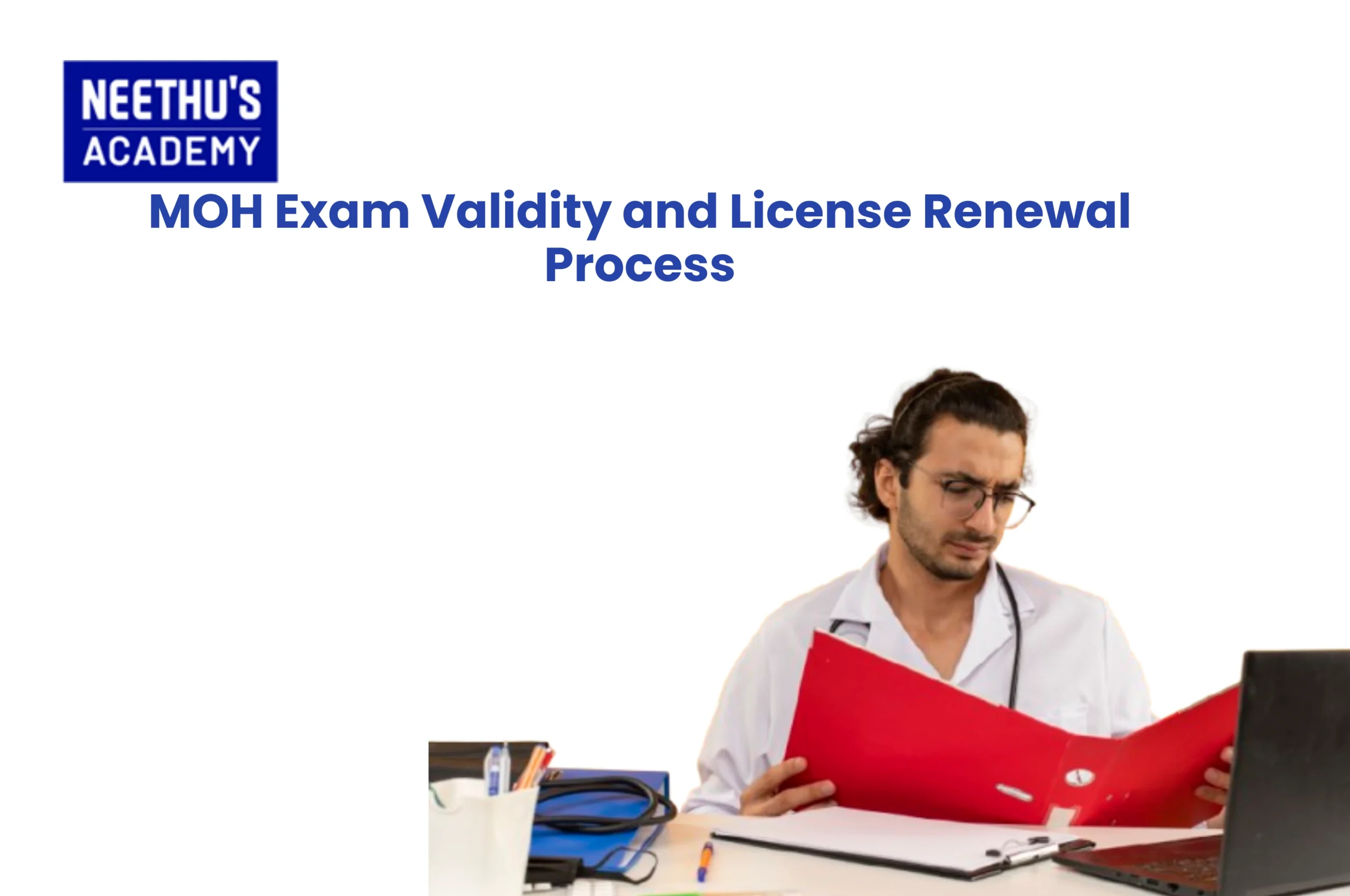OSCE is a critical assessment for healthcare professionals that tests not only the clinical knowledge but also the practical and communication skills…

OSCE Exam for Nurses: A Complete Guide
For internationally-educated nurses, one of the largest achievements in starting an international career is clearing licensing and registration exams. Of these, the OSCE exam for nurses (Objective Structured Clinical Examination) occupies an important position, particularly for those who wish to work in the UK, Ireland, and other English-speaking nations.
The OSCE is not simply another pen-and-paper test. It is meant to simulate a nurse’s actual clinical, communication, and professional competencies in the workplace. Passing this test is usually the last obstacle international nurses must overcome before being able to practice in their desired country, and it is thus a career-defining milestone.
What is the OSCE Exam for Nurses?
The OSCE test for nurses is a station-based, practical test that assesses if a nurse possesses the clinical and professional skills needed for effective and safe practice. It differs from theory-based tests in that it mimics actual clinical situations to test how nurses work under real situations.
Its primary function is to assess hands-on competencies, including patient care, communication, decision-making, and professional judgment. In the UK, the Nursing and Midwifery Council (NMC) requires internationally educated nurses to pass the OSCE in the process of registration. Likewise, the same applies in Ireland, where the Nursing and Midwifery Board of Ireland (NMBI) incorporates OSCE into its licensing route.
Who Needs to Take the OSCE Exam?
The OSCE test for nurses is primarily needed by:
- Internationally Educated Nurses (IENs) who can register and practice overseas.
- Nurses seeking registration with the UK NMC.
- Nurses who are finishing the adaptation program with the Irish Nursing Board (NMBI).
In other words, if you are a trained nurse outside the UK or Ireland and you want to practice there, the OSCE will likely be your requirement.
OSCE Exam Structure
The OSCE is a station-based exam, and each station assesses a distinct skill or competency. Candidates rotate between stations in a circuit, each approximately 10–15 minutes long.
Important areas commonly tested are:
- Patient Assessment – Prioritizing and identifying patient needs.
- Clinical Skills Demonstration – Accurately and safely performing procedures.
- Communication Skills – Communicating effectively with patients, families, and colleagues.
- Professional Values & Decision-Making – Professional and ethical nursing practice.
The UK OSCE generally consists of 10–12 stations, which are individually scored. The test generally lasts 3–4 hours in total.
OSCE Exam Eligibility for Nurses
Applicants should register with the appropriate nursing authority, like the UK NMC or Irish NMBI, before taking the OSCE test for nurses.
Eligibility normally entails:
- A verified nursing degree or diploma.
- Proof of clinical nursing experience.
- Documentation of English language proficiency (IELTS or OET).
- Passing the CBT (Computer Based Test) in the UK before advancing to OSCE.
OSCE Exam Requirements & Passing Criteria
Every OSCE station is marked on a marking rubric that grades performance in particular aspects such as accuracy, safety, and communication.
- Candidates must pass a minimum number of stations and achieve an overall passing score.
- If a nurse fails, they may re-attempt the OSCE, but repeated failures can delay registration.
- Generally, the UK NMC allows up to three attempts within a set timeframe.
Failing one or two stations often means retaking only the failed parts, but this depends on the specific board regulations.
OSCE Preparation for Nurses
Preparing for the OSCE is quite different from written exams. The most productive methods are listed below:
- Mock Exams & Simulation Labs – Practice in actual exam conditions.
- Role-Play Practice – Enhancing patient communication and self-confidence.
- Case Scenarios – Practicing repeated common clinical scenarios.
- Study Resources – NMC official materials, online mentoring, and practice guides.
- Coaching Institutes – Most internationally qualified nurses take advantage of specialized OSCE coaching institutions, which offer systematic training.
Consistency is the key. Day-to-day practice enhances both clinical confidence and exam preparedness.
OSCE Exam for Nurses in the UK (Special Focus)
In the UK, the OSCE exam for nurses is an important milestone in the NMC registration process. Here’s how it fits in:
- Nurses first pass the CBT (Computer Based Test).
- Upon entry into the UK, they are required to sit the OSCE within 3 months.
- Successful completion of the OSCE concludes the process, resulting in full NMC registration.
The UK has various authorized OSCE test centers, and direct booking of the exam can be made once eligibility is established.
Common Challenges Nurses Face in OSCE
Many nurses fail even with qualifications because of:
- Stress & Time Management – Time constraints at every station result in increased pressure.
- Unfamiliar Scenarios – Nurses might encounter situations that are different from what they are accustomed to in their country of residence.
- Language & Communication Issues – English proficiency is crucial, particularly in communication with patients.
- Overthinking – Nurses tend to get fixated on details and lose points on communication.
Tips to Pass the OSCE Exam for Nurses
Here are some tips on practical steps to enhance your success chances:
- Practice Patient-Centered Care – Prioritize safety and empathy at all times.
- Rehearse Clinical Scenarios – Get familiar with the most frequent nursing actions.
- Focus on Communication – Clear, empathetic communication scores highly.
- Simulate Exam Conditions – Practice timed situations to develop speed and confidence.
- Be Calm & Confident – Confidence can be the difference between pass and fail.
Conclusion
The OSCE test for nurses is more than an exam—it’s an entry to a global nursing career. By demonstrating their decision-making, communication, and clinical skills, nurses earn the credibility and right to practice in nations such as the UK and Ireland.
Although the exam may be tough, proper preparation—through practice, guidance, and positive thinking—can be a game-changer. For nurses who want to practice abroad, early preparation and regular practice are the secrets to success.
Frequently Asked Questions
It is a practical skills test that the NMC makes compulsory for internationally educated nurses to register and practice in the UK.
The UK OSCE typically consists of 10–12 stations, each assessing a different competency.
The UK OSCE exam costs approximately £794–£794 for the first attempt (fees could be different).
Nurses are generally permitted up to three attempts at passing the OSCE.
Related Blogs
- All Posts
- OSCE
Mastering communication skills is a must for better performance in the OSCE. Effective communication in OSCEs helps in rapport building with patients,…
The OSCE or the Objective Structured Clinical Examination is, in fact, one of the most important assessments for doctors and other healthcare…
Course Enquiry
Latest Posts
- All Posts
- canada
- CBT
- DELF
- DHA
- French
- GENERAL
- German
- Haad
- IELTS
- IQN NEW ZEALAND
- MOH
- NCLEX-RN
- NHRA
- OET
- OSCE
- Pearson Vue
- PROMETRIC
- PTE
- TOEFL
- Back
- NCLEX - NGN
- Back
- OET FOR PHYSIOTHERAPIST
- OET FOR PHARMACIST
- OET FOR DOCTORS



